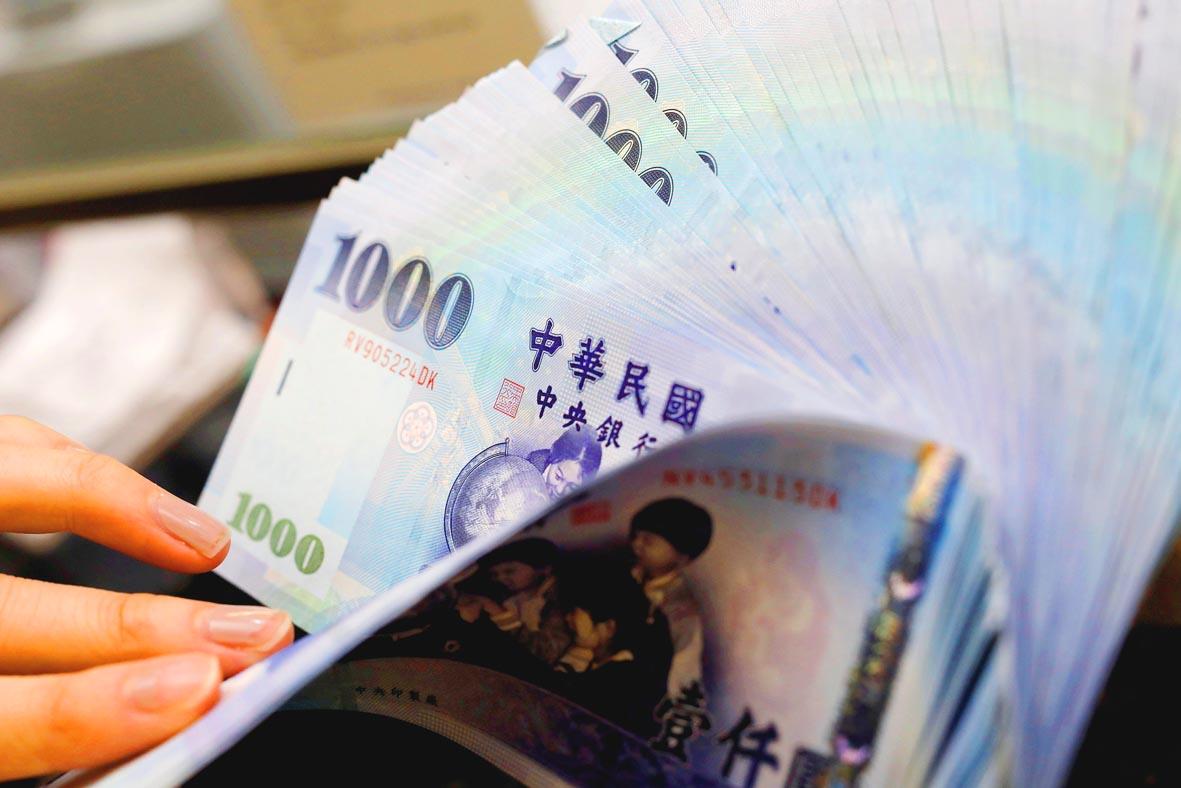The US Department of the Treasury on Wednesday added Taiwan to a list of countries being monitored for currency manipulation, the first time the nation has made the list since 2017.
The department issued its semiannual report to the US Congress on the policies of the US’ top 20 trading partners, which said that Vietnam and Switzerland had met the criteria for being labeled currency manipulators.
The manipulator designation has no specific or immediate consequence, beyond short-term market impacts, but US law requires the government to engage with the listed nations to address the perceived exchange-rate imbalance.

Photo: Tyrone Siu, Reuters
Penalties, including exclusion from US government contracts, could be applied after a year if the label is not removed.
Taiwan made it to the list of nations being monitored, along with India and Thailand, joining China, Japan, Singapore, South Korea, Germany, Italy and Malaysia, which were named in previous reports.
The department’s report, Macroeconomic and Foreign Exchange Policies of Major Trading Partners of the United States, states that a nation can be identified as a currency manipulator if it has a bilateral trade surplus with the US of at least US$20 billion, a current account surplus in excess of 2 percent of its GDP, and has engaged in persistent, one-sided intervention in the foreign exchange market. Taiwan met two of these criteria, it said.
First, Taiwan’s “persistently large current account surplus” — meaning that the value of its exports exceeds the value of its imports — reached 10.9 percent of GDP over the four quarters through June, the report said.
Taiwan’s bilateral trade surplus with the US expanded sharply during this period, rising to US$25 billion from US$18 billion the year before, the report said.
The report said that Taiwan had publicly disclosed its foreign exchange intervention in March, and encouraged it to “allow the New Taiwan dollar to appreciate to help reduce its large and durable external surpluses.”
“The Treasury welcomes Taiwan’s recent steps toward transparency and looks forward to continued efforts in this area,” it added.
The department usually publishes the assessment report in April and October, but had delayed its April report until Wednesday because of the COVID-19 pandemic.
Economies on the list must remain there for at least two consecutive reports to help ensure that any improvement “is durable and is not due to temporary factors.”
The last time Taiwan was on the monitoring list was from April 2016 to April 2017, while it was cited as a currency manipulator in 1988 and in 1992.
Additional reporting by Bloomberg

TAKING STOCK: A Taiwanese cookware firm in Vietnam urged customers to assess inventory or place orders early so shipments can reach the US while tariffs are paused Taiwanese businesses in Vietnam are exploring alternatives after the White House imposed a 46 percent import duty on Vietnamese goods, following US President Donald Trump’s announcement of “reciprocal” tariffs on the US’ trading partners. Lo Shih-liang (羅世良), chairman of Brico Industry Co (裕茂工業), a Taiwanese company that manufactures cast iron cookware and stove components in Vietnam, said that more than 40 percent of his business was tied to the US market, describing the constant US policy shifts as an emotional roller coaster. “I work during the day and stay up all night watching the news. I’ve been following US news until 3am

Six years ago, LVMH’s billionaire CEO Bernard Arnault and US President Donald Trump cut the blue ribbon on a factory in rural Texas that would make designer handbags for Louis Vuitton, one of the world’s best-known luxury brands. However, since the high-profile opening, the factory has faced a host of problems limiting production, 11 former Louis Vuitton employees said. The site has consistently ranked among the worst-performing for Louis Vuitton globally, “significantly” underperforming other facilities, said three former Louis Vuitton workers and a senior industry source, who cited internal rankings shared with staff. The plant’s problems — which have not

TARIFF CONCERNS: The chipmaker cited global uncertainty from US tariffs and a weakening economic outlook, but said its Singapore expansion remains on track Vanguard International Semiconductor Corp (世界先進), a foundry service provider specializing in producing power management and display driver chips, yesterday withdrew its full-year revenue projection of moderate growth for this year, as escalating US tariff tensions raised uncertainty and concern about a potential economic recession. The Hsinchu-based chipmaker in February said revenues this year would grow mildly from last year based on improving supply chain inventory levels and market demand. At the time, it also anticipated gradual quarter revenue growth. However, the US’ sweeping tariff policy has upended the industry’s supply chains and weakened economic prospects for the world economy, it said. “Now

COLLABORATION: Given Taiwan’s key position in global supply chains, the US firm is discussing strategies with local partners and clients to deal with global uncertainties Advanced Micro Devices Inc (AMD) yesterday said it is meeting with local ecosystem partners, including Taiwan Semiconductor Manufacturing Co (TSMC, 台積電), to discuss strategies, including long-term manufacturing, to navigate uncertainties such as US tariffs, as Taiwan occupies an important position in global supply chains. AMD chief executive officer Lisa Su (蘇姿丰) told reporters that Taiwan is an important part of the chip designer’s ecosystem and she is discussing with partners and customers in Taiwan to forge strong collaborations on different areas during this critical period. AMD has just become the first artificial-intelligence (AI) server chip customer of TSMC to utilize its advanced